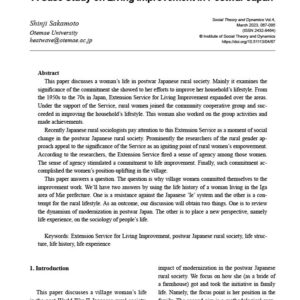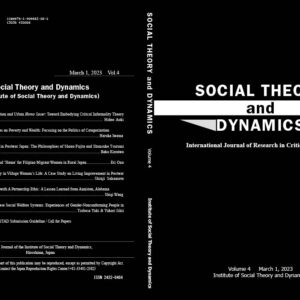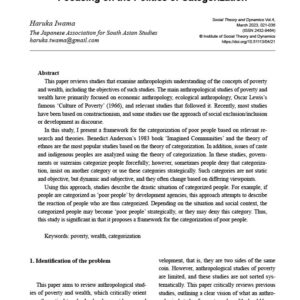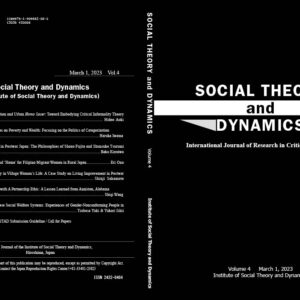Description
The process of home-making by Filipino marriage migrant women, the so-called first generation in rural Japan, is discussed in this article. Focusing on community-based language classes for immigrants and based on in-depth interviews and participatory observation in the classes, the analysis here shows how Japanese language skills related to making ‘home’ and building the lives of the women in the host country. The Home-making of migrant women is seen in multiple elements, including spatial and emotional ties. Three findings, as below, are revealed. Firstly, the role of the class and interactions with the tutors provide significant assistance in improving language skills and gaining better employment. Thus, the classes become a spatial home with emotional support from Japanese residents. However, the second finding, the evaluation of Japanese language ability among migrant women, make a border that separates Filipina migrants group from each other, making it impossible for them to form social relationships. Thereby, thirdly, home of the Filipino ethnic minority group includes not only sense of belonging but gender bias and tensions.





